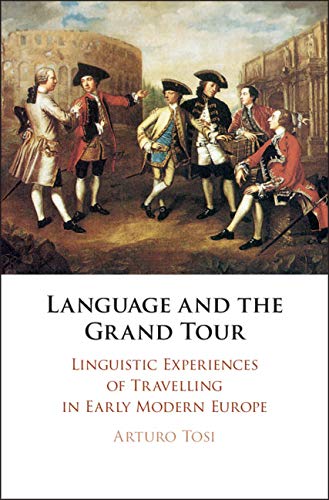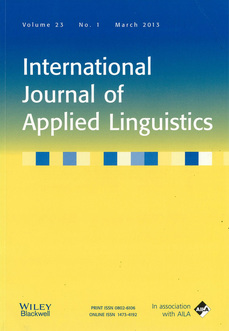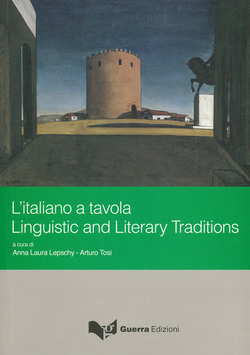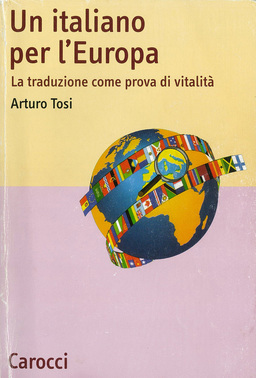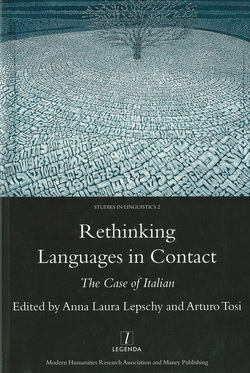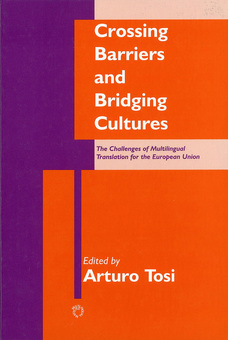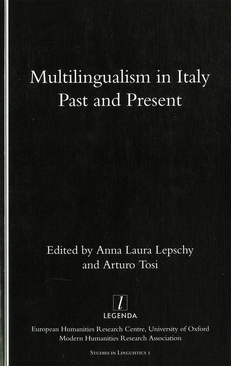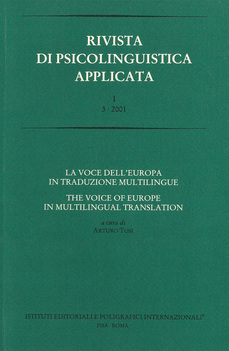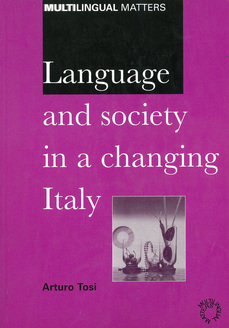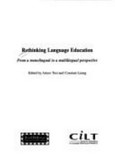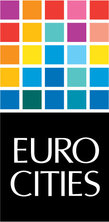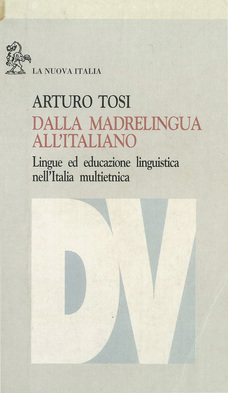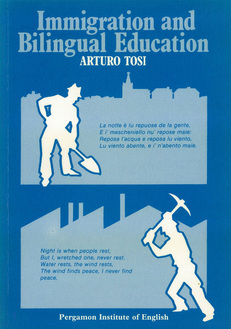|
Language and the Grand Tour
Linguistic Experiences of Travelling in Early Modern Europe Arturo Tosi
Cambridge University Press, 2020 Languages and Linguistics, Sociolinguistics - 320 pages ISBN: 9781108487276 The Grand Tour was the classical continental trip to France and Italy, undertaken by young aristocratic men in early modern Europe, ostensibly for educational purposes. Using amusing stories and vivid quotations collected from travellers’ writings, Arturo Tosi charts the rise of modern vernaculars and the standardisation of European languages. The travellers’ writings provide a valuable source of information about language contact, and illuminate how socialisation with the locals led, on the one hand, to conscious borrowings from prestigious foreign peers and, on the other, to linguistic disorientation when confronted with lower-class speech and rural vernaculars. The first of its kind to approach the Grand Tour from a linguistic perspective, this book is a timely addition to this burgeoning area of study, presenting a case study of population movement, language change and education in early modern Europe.
|
|
The EU Multilingual Translation in an Ecology of Language Perspective
Special Issue of International Journal of Applied Linguistics, Vol. 23, Issue 1.
Issue Editor: Arturo Tosi Article: Translation as a test of language vitality (pages 1–14) Arturo Tosi First published online: 26 MAR 2013 DOI: 10.1111/ijal.12016 All the papers in this collection examine various aspects of the theory and practices of the translation system adopted by the EU institutions as an instrument to implement their policy of multilingualism. My own paper adopts an ecological perspective with a view to providing an overview of how translation, rather than being a neutral operation free of ideological implications, can seriously impact on the ecosystem of the languages involved. This is certainly the case when a translation approach neglects the resources of the target language and ignores the models of its native speakers. In this sense, translation can function as a test of language vitality and a mirror of an organisation's real commitment to multilingualism.
|
|
L'italiano a tavola: Linguistic and Literary Traditions
Editors: Anna Laura Lepeschy, Arturo Tosi
Publisher: Perugia: Guerra, 2010. 104 pages L'italiano a tavola: tradizioni linguistiche e letterarie raccoglie le relazioni presentate al convegno tenuto, nell'ambito della Settimana della Lingua, all'Istituto Italiano di Cultura di Londra nell'ottobre 2006. Il tema degli usi gastronomici italiani viene affrontato dal punto di vista storico-sociale oltre che linguistico e letterario, in un ambito cronologico che va dal Medio Evo ad oggi. Alcuni saggi vertono sui termini culinari in periodi come il Rinascimento o l'Ottocento; altri esaminano il trattamento dei cibi in testi quali ricettari, novelle, commedie, opere liriche, prestando particolare attenzione ad autori come Boccaccio, il medico padovano Michele Savonarola, Ruzante, De Filippo, Calvino. Article: "Prestige and pretension at the Italian table" - Arturo Tosi |
|
Un italiano per l'Europa: La traduzione come prova di vitalità
È passato quasi mezzo secolo da quando Italo Calvino, uno scrittore che con le parole andava cauto, fece scalpore con la sua previsione di «grandi cataclismi linguistici dei prossimi secoli». Oggi le lingue più a rischio sono quelle già indebolite delle comunità più povere e indifese del pianeta. Ma la globalizzazione sta minacciando anche gli equilibri delle lingue più robuste. Come aveva predetto Calvino, le stesse lingue europee non potranno più considerarsi al sicuro. Nel mondo occidentale è l’inglese il veicolo e l’emblema di questa trasformazione, contro la quale la stessa Europa erige difese con una politica multilingue. Eppure nonostante gli immensi sforzi dell’Unione europea per sostenere il multilinguismo e garantire una comunicazione con i cittadini attraverso le proprie lingue, la forza invasiva della lingua globale sta rivelandosi attraverso canali e strumenti fino ad oggi ritenuti neutrali: la traduzione e le sue tecnologie. Il libro vuole dimostrare che un sistema di traduzione che ha molte tecnologie e poca attenzione per le risorse delle lingue non potrà mettere l’Europa al riparo da nuove egemonie.
|
|
Rethinking Languages in Contact: The Case of Italian
Editors: Anna Laura Lepschy, Arturo Tosi
European Humanities Research Centre, 2006 - Foreign Language Study - 201 pages This volume contains the proceedings of an October 2003 conference held in honor of the late Joe Cremona (1922-2003), a scholar of Italian linguistics at the Univ. of Cambridge, UK. Thirteen essays by 14 European academics address a range of issues in contact linguistics from both a geographical and historical angle, from a variety of regions in Italy. Taking as its theme the interaction between Italian and other languages, and marking the 50th anniversary of the publication of Weinreich’s seminal Languages in Contact, this volume provides an up-to-date survey of the role of linguistic and cultural interaction in the process of language change. The range of contributions covers: theoretical issues; different forms of language contact in Medieval and Renaissance Italy; dialect transition and diversity in the North and South of Italy; lexical and morphological borrowings; register and syntactic loans in the Romance area; old and new contact varieties of Italian in the Mediterranean, including Malta and North Africa; and, finally, Italian under pressure from English in EU institutions.
|
|
Crossing Barriers and Bridging Cultures:
The Challenges of Multilingual Translation for the European Union This text presents translators from different linguistic backgrounds discussing multilingual translation in the European Union. All articles stress the political dimension of multilingualism, and the professional role of the translator as communicator, on which much of the credibility of a union "speaking with one voice in many languages" will ultimately depend. The structure of this book aims to reflect the dynamic interaction between the groups of discussants. Part 1 includes some academic overviews on multilingualism presented in the plenary session. Part 2 includes four papers that examine further aspects of the debate - the role of freelancers, information technology and the media. Finally, Part 3 reports on the Round Table that followed and the discussions from the three thematic workshops that were attended by translators from all the different language services.
|
|
Multilingualism in Italy: Past and Present
This inaugural volume in a new series offers an overview of current research in Italian linguistics by specialists in Great Britain. Topics range from the formation, present state and future prospects of Italian dialects, to the notion of 'standard' in the context of the European tradition. Further contributions cover the different strands of Renaissance Italian, the problem of language death and the presence of Italian as lingua franca in the Mediterranean area. Research into contemporary language includes gender issues in Italian lexicography and the ambivalent 'politically correct' forms referring to minorities. The volume concludes with studies on the translation of legal texts and on the status accorded to different languages within the European Union. The book will be invaluable for university students of Italian or of linguistics and will provide a comprehensive survey for all interested in the Italian language and its history.
|
|
Language and Society in a Changing Italy
Arturo Tosi
Multilingual Matters, 2001 - Language Arts & Disciplines 288 pages This book examines the interrelation between language and society in contemporary Italy. It aims to provide an up to date account of linguistic diversity, social variation, special codes and language varieties within Italian society, and in situations of language contact both within and outside Italy. |
|
Rethinking Language Education: From a Monolingual to a Multilingual Perspective
Editors: Arturo Tosi, Constant Leung
Royal Holloway, University of London, 1999 Education, Bilingual - 252 pages Britain has witnessed a number of changes in language education research and policy. These changes have been influenced by: the challenges to the predominance of British Anglo-centric attitudes and values; increasing research in bilingualism and bilingual education for ethnic minorities, largely North-American based, becoming known in Europe via scholars working in Britain; and multilingual Europe investing in research and teaching provision in foreign language education.
|
A complete list of Arturo's publications can be downloaded here:
| ATosi_publications.docx | |
| File Size: | 46 kb |
| File Type: | docx |
